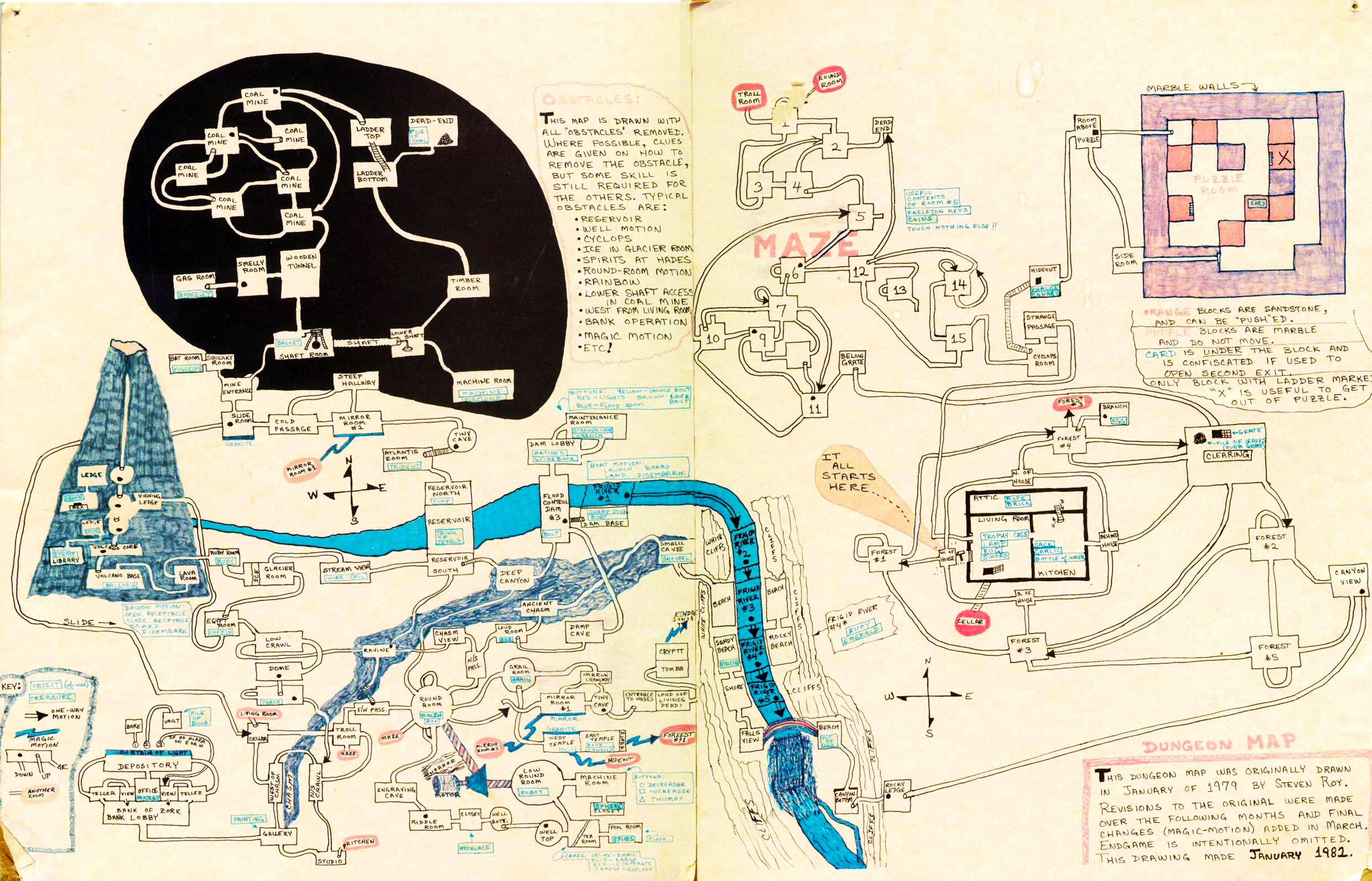I recall reading Digital Antiquarian stating about how a big focus was basically cartography and hearing about how you could go back one direction and end up somewhere completely different without notice made me recall some mazes in RPG's which generally aren't my favorite parts of those games...only without graphics.
This made perfect sense in Colossal Cave. Whether it makes for good gameplay, who knows, but it is mimetic when the game is about spelunking. Subsequent games sometimes had clever(ish) jokes about this, sometimes just included mazes for no good reason, and sometimes included things that were not mazes, but might as well have been -- it gets very hard for me to mentally map space when a "room" has no defined scale, and an "exit" has no defined distance. Like you have a "town square" that has exit "up" and "ne" both leading up a hill to a promenade, "north" leading into a bakery, "east" leading "toward the eastern gate," "west" leading "into the western part of the town square," etc. I've never been able to make a mental map of that. Even adventure games that use different camera angles, scales, etc., are much easier for me to navigate.
The reason I propose starting with smaller text games is that you will start to develop the basic ability to "navigate" the game (geographically, but also in terms of how you interact with things) on a scale that is easier to manage if it's unfamiliar.
just a bit wary of Infocom still because of the mazes and hearing about how they are like the worst of Sierra times eleven where one bad action will royally screw you over without notice all the time.
It's not even a lack of notice or the presence of designer malice or anything like that. Just very different conventions. I'll give you an example: the idea that significant areas should be dark, requiring a light source, and that light sources should only work for a given number of rounds before they run out of fuel, is like foundational to text adventures. It never became a meaningful part of graphical adventures, which is why the Kyrandia cave sequence provokes so much outrage -- it's something that would be unremarkable in a text adventure, but sticks out in a graphical adventure. When I started working in Inform and TADS, one thing that jumped out to me is that there are features like object weight (for encumbrance), containers (for handling number of items allowed in inventory), light sources (as noted) that were set up to be super easy to implement because the basic expectation was,
of course the player would have to juggle items in his inventory to satisfy limits, of course he would have to make sure he didn't burn up all his lamp oil while navigating the cave maze, etc. Those were features that every designer would
expect to be able to quickly implement.
The problem is that unless you grew up with those conventions (which I didn't), they might as well be bullshit malice rather than just the local adventure game dialect. Which is why, again, I would ease in with modern games.
Photopia is good because it is so easy, even the dumbest player (e.g., me) can finish it, while learning the basics of how to play a text adventure. I found its writing to be quite evocative and moving, and perhaps you will, too. (Many players love it, a minority thinks it is maudlin.)
Then Metamorphoses is good because it actually shows why text adventures are so cool -- you can simulate a ton of stuff that would be impossible to depict visually but is pretty easy to describe verbally. It's also very well written. It does a good job of introducing the different way you have to approach text adventure puzzles. Even when graphical adventures had a lot of verbs, they really didn't; you seldom actually had to figure out the right way to manipulate an objection. But text adventures are very much not just about
what but
how. A typical graphical adventure sentence might be, "Use knife with bread." A text adventure would probably not accept that sentence -- it might even literally ask, "How?" So you might say "slice bread with knife" or "cut crust off bread with knife" or "poke hole in bread with knife" or whatever. Getting used to this more open form of interaction takes time. That kind of interaction is basically absent from Photopia (which is why it's easier as an introduction), but it's very present in Metamorphoses, which thus does a good job of introducing you to the mode.
The other games I mentioned are all in some ways more like graphical adventures -- limited number of rooms, objects, NPCs, more of a focus on storytelling, a presumption of usefulness when you find something, limited failure states, etc. So playing them will help you build up your familiarity with the genre conventions. Once you're familiar with them, I don't think Zork would be hard to play.




























